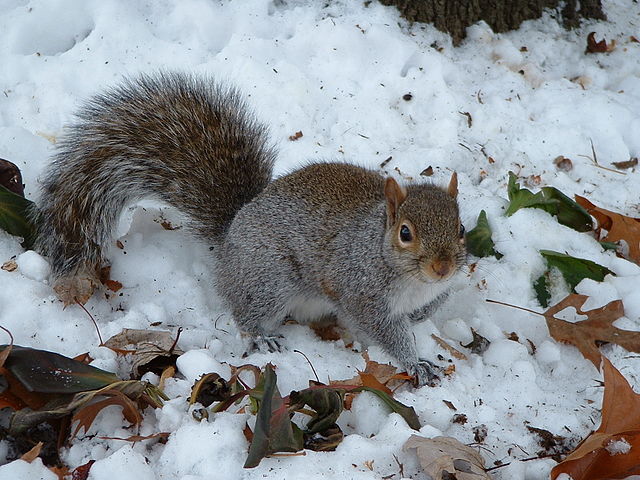The winter months are tough – having to venture out of the house when there’s sleet or snow falling in droves can be depressing at best, and downright dangerous at worst. And for the critters who don’t have a heated home to retreat to this winter, the bad weather really can be a matter of life and death.

Luckily for them, though, they have you responsible animal lovers to take care of them, right? Here are some tips on helping out your feathered, furry, scaly and winged friends when it’s cold out.
Ladybugs
You could be forgiven for thinking that ladybugs spend their winter vacation somewhere tropical, but they’re actually hiding away in your back yard. They often group together in hollow stems, under logs and amongst leaves – basically, wherever there is safe shelter. Be careful not to disturb them when tidying your yard and they’ll reward you in the spring when they take care of those pesky aphids.
Rabbits
Domesticated rabbits will often be taken indoors during the winter, but spare a thought for the wild bunnies who may live near your home. A tray filled with lettuce and carrots will be most welcome, and a source of water could just save their life. Invest in a heater to keep your bird bath ice-free, or regularly check any water supplies you keep outdoors to make sure animals can access the water.
Birds
Suet cake will attract woodpeckers, while oiled sunflower seeds are a great all rounder and high in calories. A bird feeding station that’s located high enough will keep the seeds out of the way of squirrels, but don’t worry – they’ll eat the ones on the ground.
Be careful, though – if you encourage your feathered friends too much, they may become reliant on the artificial food source, which isn’t good news for them. While you may enjoy seeing all of those birds in your garden, chances are their predators will notice their arrival, too – and see it as a feast. If you can, try to plant some seed- and berry-bearing plants ready for next winter so the birds have a natural source of food.
Ducks at your local pond
While most of us probably did this at some point during our childhoods, feeding ducks bread or corn is a really bad idea. These foods fill up the ducks’ tummies, but are nutritionally poor so the birds don’t get enough nutrients in their diet. Instead, feed the ducks dry dog or cat food. These contain fat to help the ducks to keep warm and replenish the oil in their feathers, without filling them up too much.
Chipmunks
Alvin, Simon and Theodore – as well as their friends the rabbits, ground-nesting birds, insects and reptiles – need a place to stay for the season, and the best way to accommodate them all is to create a firewood pile. Keep it close to food sources and cross your logs as you stack them so that there are lots of spaces within for creatures to hide.
Stray pets
Sometimes pets get lost or abandoned and when that happens, they really need a friendly face to offer them shelter until they find their home again, or are re-homed. If possible take them to your local animal shelter, or if they’re feral set up a shelter for them outside with some food and water, then call the shelter for help in trapping them. Try to keep them separate from your pets to avoid any fights.
About Me
My name is Eric. I am a keen gardener and I love to have a garden full of wildlife. I work for Millrace Garden Centre where we sell all sorts of gardening supplies. When I’m not in the garden or outdoors I also enjoy reading and writing about nature and sustainability.

